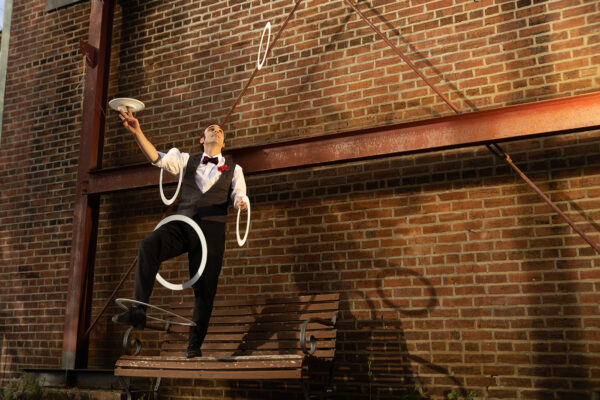Earlier this year, GameStop was the hottest story on, and off, Wall Street when its stock price soared by 1,700% over a short period of time. The once-struggling company’s meteoric rise defied logic. How could amateur investors take on powerful traders and analysts as they had?
The answer is through narrative. Reddit users banded together to invest in GameStop and other struggling companies — not because it was a good investment but because they envisioned themselves as “David” taking on “Goliath” (in this case, Wall Street).
As GameStop’s experience demonstrates, the market does not behave rationally. And individuals aren’t motivated solely by data and facts, dollars and cents. Complex emotions and competing interests come into play. So it makes sense that modern economics should be informed by sociology, psychology, ethics and even literature.
“We want students to imagine alternatives to the answers. We want them to understand why others might disagree with them.”
Abram Van Engen, professor in “Markets and Morality”
That is precisely what co-instructors Peter Boumgarden, PhD ’10,the Koch Professor of Practice for Family Enterprise at Olin Business School, and Abram Van Engen,associate professor of English in Arts & Sciences, are doing in their course “Morality and Markets.” They use books, film and television, along with modern psychology and business strategy, to teach students to think critically about living a moral life in the midst of the modern market.
Boumgarden and Van Engen hope their course will prepare future leaders to be more reflective and to think about problems from a number of perspectives. “Narratives give us something beyond an argument or an opinion,” Van Engen says. “The more narratives we come across, the more they reform and inform the narratives we have already come across.”
Boumgarden agrees. “There is quite a bit to be gained by pairing together business and literature,” Boumgarden says. “And, in fact, we need to think about the moral complexity of markets in the world we live in right now.” He points to the connection between Big Pharma and the opioid crisis. How much responsibility does Big Pharma bear? What about companies profiting from collecting your data? How much of your information is private?
“These are questions that exist at the intersection of technical expertise, philosophy, legality and, to some degree, literature,” Boumgarden says. “And though we [as a business school] can approach these questions in a traditional way — such as a traditional ethics course and a traditional business course — maybe there’s a new way to reach across these boundaries to create something new and distinct, to shape the thinkers of the next generation.”
“Markets and Morality” is offered through WashU’s Beyond Boundaries program, which enables students to explore a variety of topics — including aging, climate change and artificial intelligence — from multiple disciplinary perspectives.
The class included students from Olin, Arts & Sciences and other schools, which provided a unique learning opportunity. “The students bring different perspectives to the problems we face and the solutions to those problems,” Van Engen says. “Of course, Peter and I have our own take on these things, too.”
Learning to understand and respect differing opinions is the most important lesson students can take away from the course. “We want students to imagine alternatives to the answers,” Van Engen says. “We’re not trying to convert them from one position to another, but we want them to understand why others might disagree with them.”
Ultimately, Boumgarden and Van Engen hope the course — through the power of story in an interdisciplinary setting — will inspire their students to respect different viewpoints, while teaching them to think in new ways about markets and morality.


